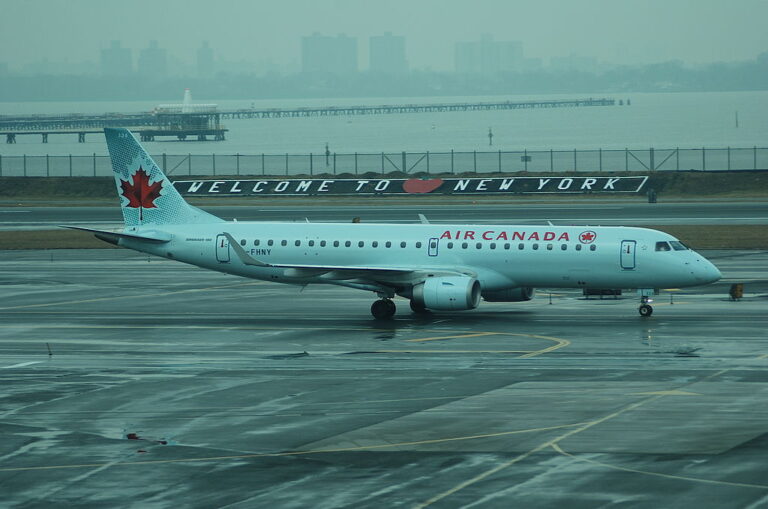
Transatlantic travel, a cornerstone of global mobility and tourism, is facing potential shifts as the economic and political climate in the United States raises new concerns. As the U.S. continues to navigate through economic fluctuations, political polarization, and international relations challenges, questions are surfacing about whether these factors will lead to a decline in transatlantic travel. But is the decline inevitable? How might these factors reshape air travel, tourism, and global economic exchange between the U.S. and Europe?
In recent years, the U.S. has experienced significant economic turbulence, including inflationary pressures, rising interest rates, and an uncertain job market. As a result, many Americans are reconsidering their discretionary spending, including travel. A decline in consumer confidence and an increase in living costs may lead to reduced disposable income for vacations abroad.
Moreover, the U.S. dollar’s fluctuations—stronger or weaker against the euro—can also impact the affordability of overseas travel. For American tourists, a stronger dollar can make European destinations more attractive, while a weaker dollar might discourage travel, as the costs of flights, accommodations, and daily expenses rise.
The economic uncertainty, paired with rising costs for airlines and fuel, may translate to higher ticket prices for transatlantic flights. This could deter many Americans from booking international flights, particularly to Europe, where premium services and tourist-heavy regions could see a drop in demand.
The ongoing political divide in the U.S. has not only created internal instability but also impacts its international standing and relations. As the U.S. becomes more inward-focused, some Europeans might choose to avoid the country due to political polarization, concerns about safety, or unfavorable visa policies that may emerge from new administrations.
For U.S. citizens, political tensions abroad might fuel caution and impact decisions regarding international travel. For example, European visitors to the U.S. might be less inclined to travel, influenced by political narratives and concerns over domestic instability, violence, or shifts in visa regulations. International perceptions of the U.S. could, therefore, indirectly impact the ease and frequency of transatlantic travel.
While there are reasons to believe that the U.S. economic and political challenges could dampen transatlantic travel, the travel industry is not sitting idle. Airlines, hotels, and travel agencies are proactively finding ways to counteract these challenges. For example, low-cost carriers have emerged as a solution to reduced spending power among travelers, offering affordable options for Americans looking to visit Europe. Furthermore, innovations in digital nomadism and remote work have allowed more individuals to extend their travels, potentially making up for the loss in short-term tourism.
Some experts predict that U.S. businesses and governments may double down on promoting tourism, particularly after the pandemic’s impact on global travel. By introducing incentives like visa flexibility or streamlined travel programs, the U.S. government could encourage inbound tourism, including from Europe.
Beyond economic and domestic factors, geopolitical dynamics are also shaping global travel behavior. In recent years, international tensions—ranging from trade wars to concerns about safety—have played a role in shaping transatlantic travel patterns. The U.S. and Europe, despite shared interests, are navigating complex relationships with Russia, China, and other geopolitical players.
Security concerns, particularly in light of recent global crises such as the pandemic or rising fears of terrorism, could play a role in altering travel patterns. However, Europe has long been a major tourist destination, with its stable infrastructure and strong commitment to tourism safety. As political instability in other regions continues, Europe may continue to draw Americans looking for stable, familiar travel experiences.
As political and economic conditions shift in the U.S., so too do the travel preferences of both Americans and Europeans. For example, Americans may look to travel to destinations that offer more economic value, such as Eastern Europe or less tourist-heavy regions of Western Europe, rather than traditional spots like Paris or London, which have seen a rise in costs due to inflation.
Simultaneously, European tourists may begin to favor other regions such as Asia or Latin America, depending on the political climate in the U.S. Europe’s tourism market could also see a redistribution of travelers due to concerns about American policies on issues such as climate change, healthcare, and gun violence, leading some international visitors to choose alternatives.
Despite these challenges, transatlantic travel is unlikely to decline permanently. The U.S. and Europe share deep economic and cultural ties, and millions of people travel back and forth for both business and leisure purposes. While there may be fluctuations in volume due to changing circumstances, the foundational links between the two continents remain strong.
The future of transatlantic travel may see diversification in terms of how people travel, where they go, and how long they stay. Changes in the U.S. economic and political climate may affect the preferences and frequency of travel, but with continuous innovation in the travel sector, adjustments in visa and travel policies, and the ongoing desire to explore other cultures and economies, transatlantic travel could evolve, but it is far from disappearing.
As we look ahead, it is essential to closely monitor how the political and economic situation in the U.S. will continue to unfold. Will it foster greater international cooperation or further division? The future of transatlantic travel is tied to broader global dynamics, but one thing is certain: the exchange between Europe and the U.S. will continue to evolve, albeit with new patterns and challenges.
While the U.S. economic and political climate may indeed cause fluctuations in transatlantic travel, a complete decline seems unlikely. The interplay of economic pressures, political changes, and global dynamics will likely continue to shape travel preferences, but it will also push industries to innovate and adapt. The transatlantic bridge may transform, but it will likely remain an important link for global connection.

